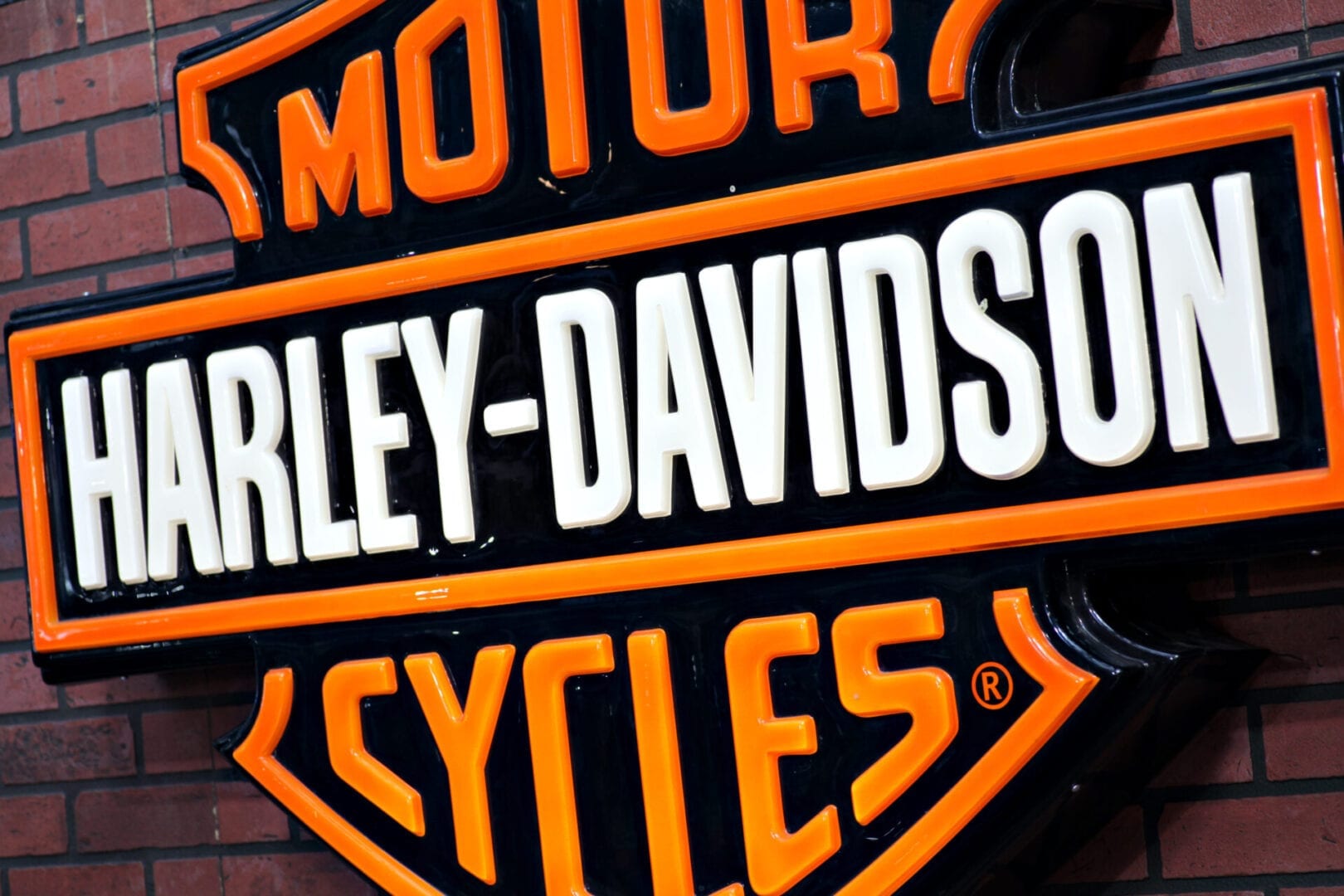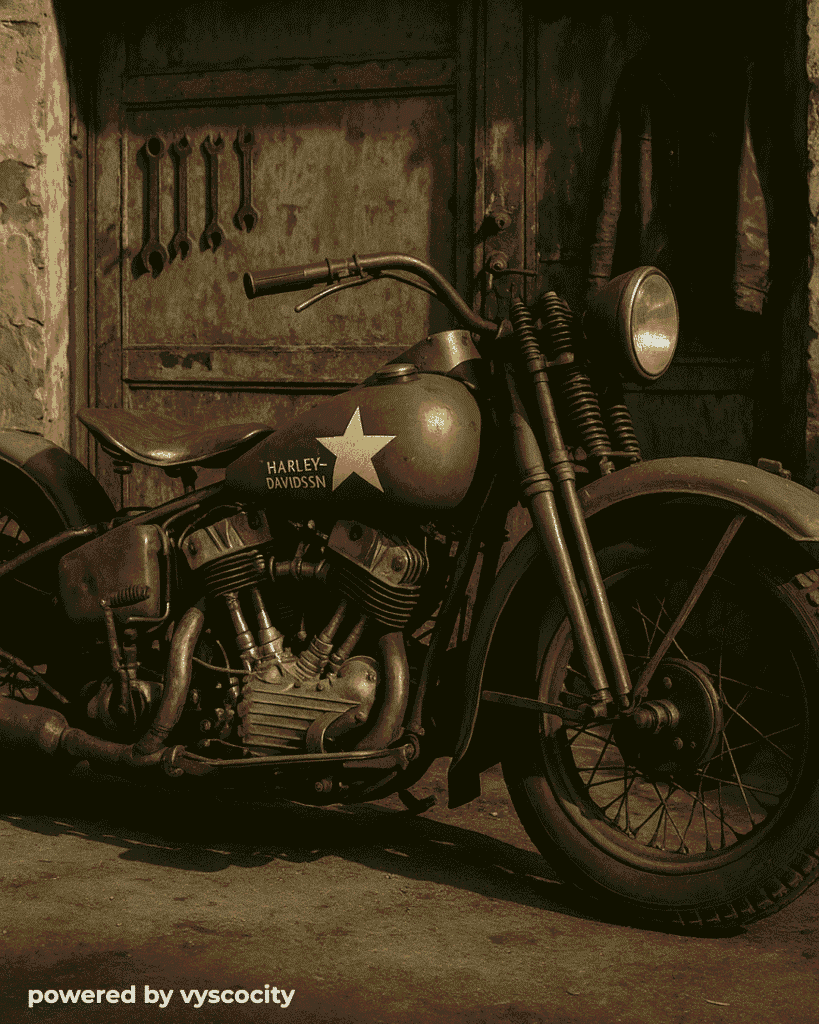Classic Harley-Davidson Motorcycle Flathead

Few engines in Harley-Davidson history are as iconic—or as misunderstood—as the Flathead. With its exposed valves, vintage charm, and indestructible reputation, the Flathead wasn't just a stepping stone in motorcycle design. It became a symbol of American resilience, wartime ingenuity, and garage-built creativity.
This article explores everything you need to know about the Harley Flathead engine family: how it evolved, what makes it unique, which models ran it, and what oil to use if you're still running one today.
What Is a Flathead Engine?
The term "Flathead" refers to the engine's side-valve design, where the intake and exhaust valves are positioned beside the piston rather than above it (as in overhead-valve engines). This simplified layout reduced manufacturing costs and improved reliability—two critical factors during the Great Depression and World War II.
But while Flatheads were easy to maintain and durable, they lacked the power of OHV engines. This led to their gradual phase-out in favor of Knucklehead and Panhead motors. Still, Flatheads earned a cult following among classic bike lovers, restorers, and military history buffs—and they're still on the road today.
Harley-Davidson Flathead Models (1929–1973)
The Flathead wasn't a single bike. It was an engine platform used across multiple Harley models:
-
45ci Flathead (WL, WLA, WLC)
- Years Produced: 1929–1952 (civilian); through the 1950s for military/Servi-Car
- Displacement: 45 cubic inches (737cc)
- Applications: WL (civilian), WLA (U.S. Army), WLC (Canadian Army), WR (racing)
- Known For: Military use, high production numbers, simple mechanics
The WLA/WLC became legendary during WWII. Nicknamed the “Liberator,” it was Harley's workhorse on the battlefield. Many surplus WLAs were later civilianized, chopped, and customized by early postwar riders.
-
74ci & 80ci Big Twin Flatheads (Model U, UL, UH, etc.)
- Years Produced: 1937–1948
- Displacement: 74ci (1,207cc) or 80ci (1,310cc)
- Applications: U, UL (high-compression), UH (80ci variant)
- Known For: Smooth torque, heavyweight cruisers, sidecar rigs
The big-twin Flatheads never saw the same commercial success as the 45s, but they were popular with long-haul riders who valued smooth power and repair simplicity.
-
Servi-Car (G Model)
- Years Produced: 1932–1973
- Displacement: 45ci Flathead
- Known For: Three-wheel utility, police and delivery service
- Fun Fact: It outlived all other Flathead platforms by decades.
The Servi-Car is a true oddball classic. Built for durability, not speed, it became a favorite for small-town shops and law enforcement.
Why Riders Still Love Flatheads
Even today, Flatheads draw a passionate following. Here's why:
- Simplicity: Fewer moving parts means easier wrenching.
- Style: That distinctive low-profile cylinder look is pure vintage Americana.
- History: Owning a Flathead is like riding a rolling museum piece.
- Durability: Built to run in war zones, survive abuse, and keep going.
It's not the fastest engine Harley ever made—but it's arguably the most soulful.
Flathead Engine Specs
| Spec | 45ci Flathead (WL/WLA) | Big Twin Flathead (UL/UH) |
|---|---|---|
| Displacement | 737cc | 1,207cc–1,310cc |
| Bore x Stroke | 2.75" x 3.81" | 3.44" x 4.00" |
| Horsepower | ~23 hp | ~34–38 hp |
| Compression Ratio | 5.0:1 | 5.5:1–6.0:1 |
| Valve Type | Side-valve (flathead) | Side-valve (flathead) |
| Lubrication | Total-loss / Recirculating (late models) | Recirculating (dry sump) |
| Ignition | Magneto or coil | Coil |
What Oil Should You Use in a Flathead?
Flathead Harleys use a dry clutch system with separate engine, transmission, and primary cases. That means you don't need JASO MA-certified wet-clutch oils. You're free to run high-ZDDP synthetics like AMSOIL Z-ROD or Premium Protection for better rust protection and engine longevity.
Note: Harley-Davidson Flathead models used a dry clutch system with a separate transmission and primary. Oils listed here are appropriate for that configuration. Always verify your specific setup before use.
Recommended Oil Options for Flathead Models
| Component | AMSOIL Product | Why It Works |
|---|---|---|
| Engine | Z-ROD 20W-50 | Best for vintage engines with flat tappets, long-term storage, and rust protection |
| Premium Protection ARO 20W-50 | Excellent choice for regularly ridden Flatheads needing strong wear control | |
| Primary (if serviced separately) | V-Twin Primary Fluid | If using a belt or upgraded primary chain setup |
| Transmission | V-Twin Transmission Fluid | Smooth shifting and protection in classic 4-speed boxes |

Restoring and Riding a Flathead
Maintenance Tips
- Check valve clearance regularly—valve seat recession is common.
- Use modern fuel stabilizers and ethanol treatments.
- Consider electronic ignition conversions for reliability.
- Replace old cork gaskets and seals to avoid leaks.
- Don't overfill oil—it's not a pressurized system like newer bikes.
Common Upgrades
- 12V electrical conversions
- Hardtail-to-springer frame swaps
- Modern tires with vintage profiles
- Front disc brake kits (for safety)
Where to Ride & Show Off
- Vintage Harley rallies like the Wauseon National Meet
- Military reenactments with WLA restorers
- Local ride nights—a Flathead always draws a crowd
Internal Links You'll Want
- AMSOIL V-Twin Motorcycle Oils
- Why Do Mechanics Hate AMSOIL?
- Is AMSOIL Worth It?
- AMSOIL Z-ROD Series for Classic Cars & Bikes
- Harley Davidson Abbreviations
Protect Your Flathead with Modern Lubrication
Want to protect your Flathead with modern lubrication that still honors its legacy?
Keep history alive—and your motor running strong.
FAQ | Harley Davidson Flathead
Where to Buy / Become a Dealer
Looking to buy AMSOIL?
Powered by Vyscocity
Built by Vyscocity to help you get the job done right — whether you're riding, wrenching, or running a fleet.
Explore our products, try our free tools, and let us know how it works for you.
❓ Still stuck? Ask your question on Facebook →
No fluff. Just function.










